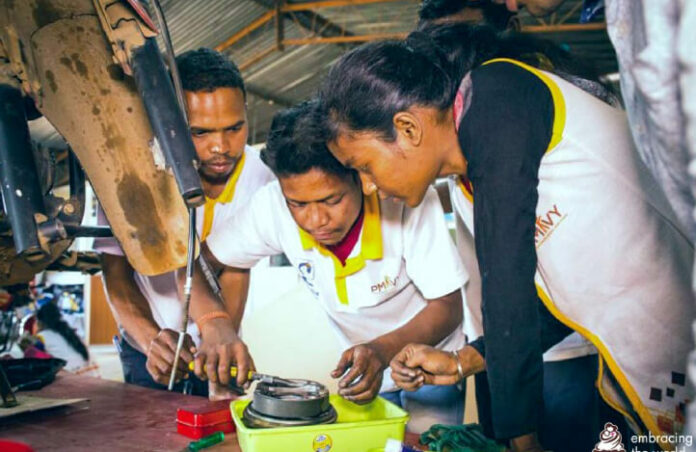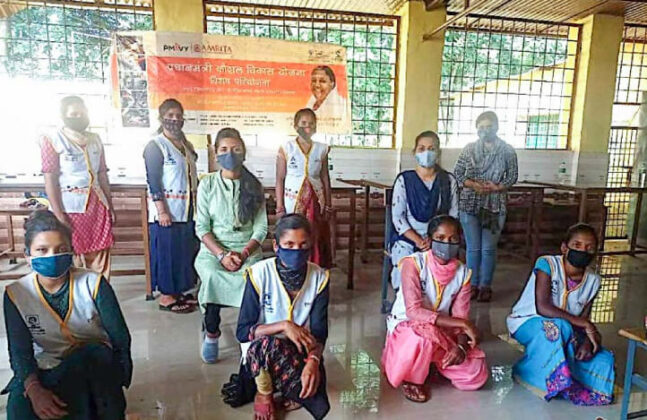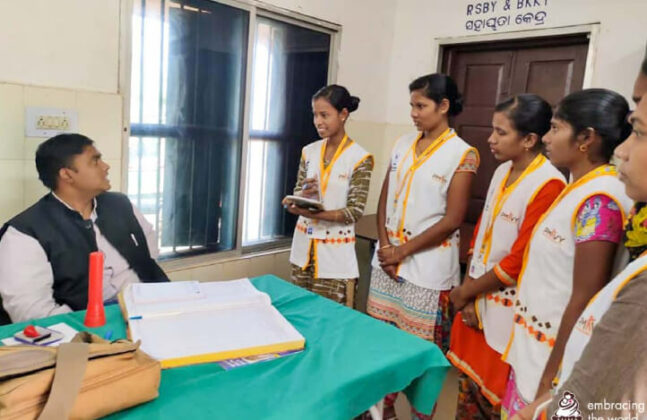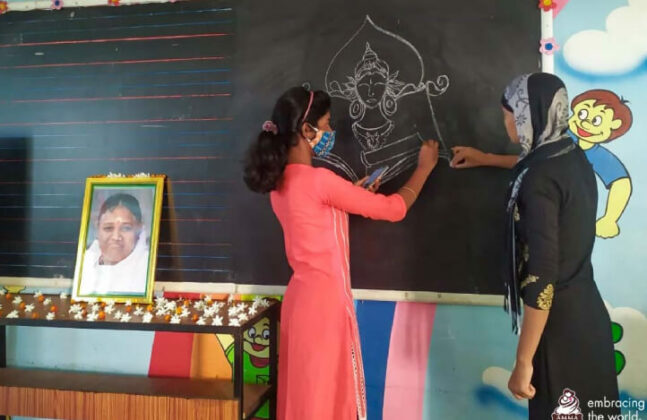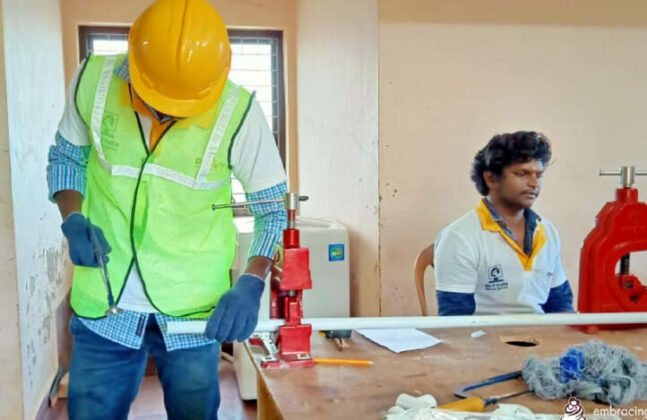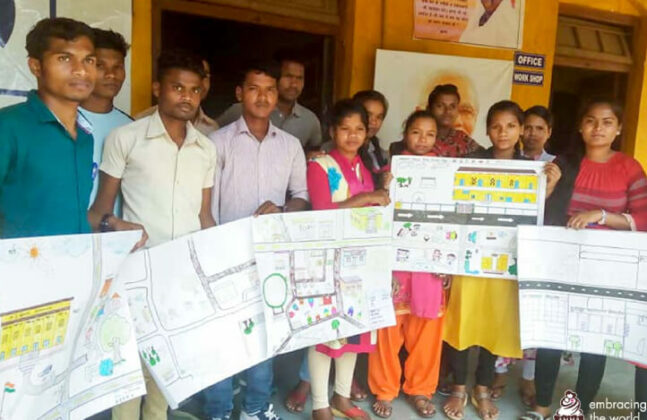At the Amrita-PMKVY hub in the state of Chhattisgarh, students were excited to return in person to complete their final exams. The center is located in a poor tribal belt and only recently opened after a long lockdown. Despite the difficult times and challenges of the pandemic, these young people didn’t lose hope and were enthusiastic to keep up their studies. The Pradhan Mantri Kaushal Vikas Yojana (PMKVY) Special initiative is a project by the Government of India. It is designed to provide quality skill development to youth between 18-35 years who are from impoverished remote and rural areas. They are often sidelined from formal training and struggle to find viable employment opportunities. The partnership with Amrita Vishwa Vidyapeetham began in November 2018 and holds the goal of personal empowerment and transformation for each student. The youth are able to access state-of-the-art skill training in critical, industry-relevant areas – a nearly unimaginable opportunity to earn for themselves and their families.
As of today, more than 800 youth have been trained in isolated and tribal areas of the states of Kerala, Chhattisgarh, Odisha, Tamil Nadu and Jharkhand. Amrita-PMKVY has established nine training centers and offers short-term courses in the following areas: Plumbing General, Automotive Service Technician, Self-Employed Tailor, General Duty Assistant (health care) and Domestic Data Entry Operator. As part of giving skills training to youth, the university has also trained over 3,500 school students from class 6-11 in 26 schools in the states of Kerala and Andhra Pradesh under its “Future skills: Skills for Schools” program launched in 2016. Another 1,000 children in 20 schools will be trained this year. Both these projects are spearheaded by AMMACHI Labs, which is working to empower Indian youth through vocational education. “Youth and school students in rural and remote villages suffer from marginalization, lack of resources, low levels of education and poor career prospects. If they migrate to cities, they get only unskilled jobs and are put under casual contracts, much to their disadvantage,” says Prema Pillai, Operational Lead for PMKVY Special Projects, AMMACHI Labs.
“Lack of certification from training institutes reduces their capacity to negotiate salaries. Rural schools are crippled by a lack of financial resources, antiquated technology infrastructure and inadequately trained teachers to impart technology education. With industry-relevant skills and vocational training taught by Amrita, rural youth are at an advantage economically and socially, helping them secure better livelihoods.” All of these vocational courses offered at Amrita’s PMKVY centers are aligned with India’s Ministry of Skill Development and Entrepreneurship’s national occupational standards and are delivered through a blended learning format called Amrita Computerized Vocational Education and Training (CVET). The CVET delivery model, first developed by Amrita in 2010, is now being used to provide vocational training to over 5,000 people in rural India. “Amrita-PMKVY has enabled socially marginalized and economically disadvantaged youth to access skill development free of cost,” adds Ms Pillai. “Our trainees have gained the technical skills needed to earn a living. They have got jobs with several industries and micro-enterprises. Many have started their own businesses. Out of all the students trained by us, we are proud to say that more than half are women.” Amrita’s Skills in Schools program is covering rural schools in Kerala and Andhra Pradesh to introduce students to computational thinking, robotics and maker-skills through STEM workshops. ‘STEM’ stands for science, technology, engineering and mathematics.
Said Gayathri Manikutty, STEM Innovation Research Lead with Amrita, “The Skills in Schools program is delivered to students through workshops lasting from four to ten days on topics like computational thinking, robotics and maker-skills. “Year-long programmes are also conducted in vocational training and till date, we have conducted more than 100 workshops, developed over 25 curriculums, trained 200 teachers and over 3,500 students in 26 schools. In 2021, despite the pandemic, we will be reaching out to over 1,000 children in 20 schools through teacher training programs.” Most of the students taught are from low-income families. They have gone on to win top prizes in international competitions in robotics, such as the World Robotics Olympiad and Robocup, as well as in national and international competitions like ATL Tinkering Marathon, UNESCO Water Wise Program for School Children, and International Space Olympiad. “Students have written and presented research papers in international conferences, including the Fablearn Asia 2020 conference held in Thailand and Global Humanitarian Technology Conference held in the US. They have also filed for US and Indian patents,” Ms Manikutty added.

